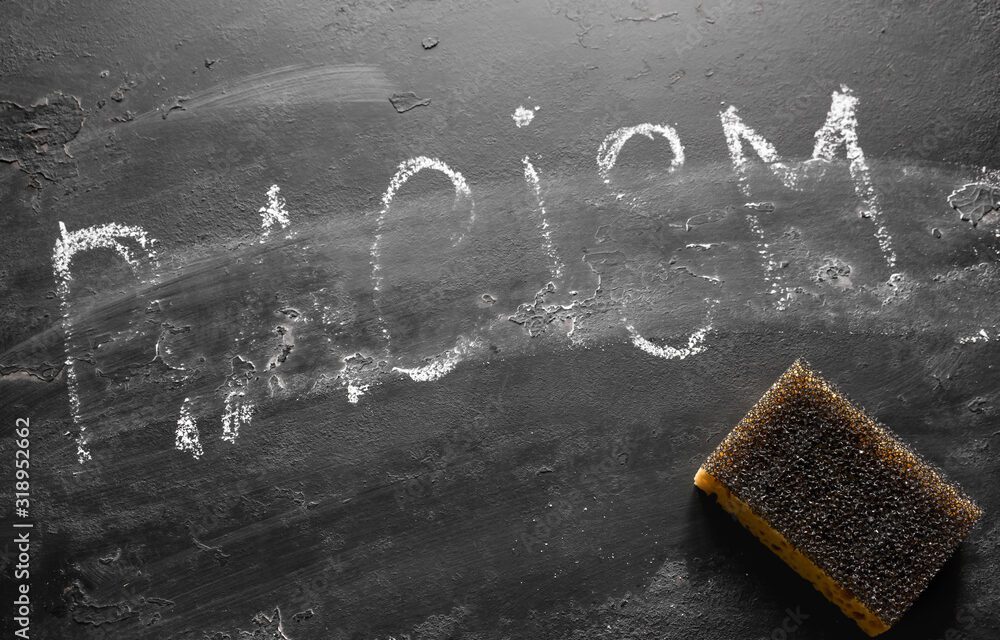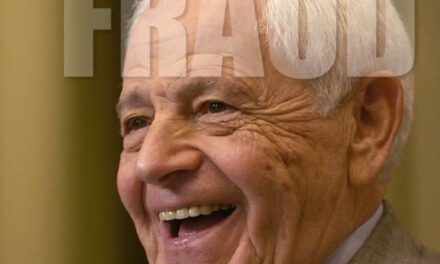I. Introduction
Words like “outrageous” have largely been ruined by the legal profession. In many briefs, for example, if an author does not like the views, and/or the arguments of the opposing author s/he calls it, or various “things” in it “outrageous,” and/or uses similar words. (“Ludicrous” is one of these; “fanciful” is another, as is “absurd.”) The list of similar words is a long one.
The idea of using actually appropriate terms such as “invalid,” “unsound,” “unlikely,” and/or “wrong” seems more and more seldom to be embraced.
Does the profession–or, lots of members of the profession–really believe that decisions are made on the basis of the use of strident language? I actually do not remember a court ever calling an argument “outrageous,” although they sometimes say that about the conduct of lawyers.
—MSQ
Some of the conduct of some clients, however, really is, out-and-out outrageous. This doesn’t have to be a violent act; it can be running naked through a church with a hard-on, a husband calling his pregnant wife a “cunt and a whore” in public (as recently happened to my pristine daughter), or calling the presentation of arguments in a trial and in front of both the jury and the judge, nothing but “foul spelling chicken-shit.”
One would never expect to hear about that kind of conduct at a university (whether distinguished or not) perpetrated by an upper mid-level member of the administration and tolerated, perhaps even supported, but a very high ranking member of the administration, who is also an elected political figure in state government. Yet this is what happened at Alabama State University (ASU) not so long ago.
Weatherly et al v. Alabama State University, et al, 2013 WL 4712727 (11th Cir. September 3, 2013)
First, there is the story. Second, there is the opinion of the 11th Circuit. Last there comes the part about lawyer performance.
I. The Story
There were three women (Weatherly, Williams, and Burkhalter) who were the plaintiffs in this case. Two are African-American, while one was biracial (part African-American, part Caucasian). The direct perpetrator, Bartley, also an African-American woman, was an associate executive director in the Office of Special Assistant to the President. Bartley’s boss, Knight, was the special assistant to the president, then acting president, and then chief operating officer. They were defendants, along with ASU. Most of the abuse was carried out by Bartley, but not all; Knight, a male, was also sexually abusive.
The plaintiffs were office personnel and were supervised by Bartley. The testimony of the plaintiff will be summarized in the next three paragraphs.
Bartley repeatedly used the forbidden words “nigger,” “nigra,” “nigger shit,” in their presence, often to their faces, for example, about something they had done or left undone.
Bartley’s abuse of Weatherly went on from 2002 until 2008, except for briefly in 2003 when Weatherly moved to a separate department. At one point a physician “took her off work.” When she complained to HR nothing was done, and eventually, she was moved to another department.
Burkhalter was a senior administrative secretary for Knight from 2007 to 2009. She was treated to virtually all the same language as Weatherly plus various combinations of derisions with “bitch.” Even Burkhalter’s 7-year old son was called a nigger. And there was abuse by imagery. At least once, Bartley looked her up and down and curled up her nose. The verbal harassment was not restricted to racial comments. Burkhalter said, for example, comparing Burkhalter’s breast to “melons.” And the descriptions of verbal abuse go on and on. This plaintiff also testified that Knight made similar remarks. There was even some physical touching of a suggestive nature.
At one point Knight told Burkhalter that she was not allowed to document “anything” that happened to her in his office.
The conduct of Knight and Bartley apparently caused health problems for Burkhalter, and eventually, she was fired for “abandoning” her job.
In the case of Williams, it all went more quickly. She was hired in January 2008. She immediately received the same kind of abuse as Weatherly and Burkhalter, but when she went to HR, they refused to receive her complaint on the grounds that they had already received a number, but had already had a hearing. She tried to file twice more but was turned down again and again. In mid -November 2008, she wrote a letter complaining of the hostile work environment of the past few months and sent it to Knight, Bartley, HR, and the EEOC. ASU promptly fired her, and she was unable to find another job for a year.
The plaintiff went forward. There was a motion to separate the suits. There was a discovery. There was a trial. The jury decided. The plaintiffs prevailed. They asked for “front” pay from the judge, and it was granted. And there was an appeal. (In the district court, the judgment was over $300k for each of them, and in two cases closer to $400k.)
II. Lawyer Performance
And now we’ve arrived at the point where the discussion of the lawyer and their performance begins.
The procedures followed by the lawyers are simple:
- They claimed that the district judge abused his discretion by not granting ASU’s motion to separate the cases.
- They argued that the district court “should have found that ASU’s untimely renewed motion for judgment as a matter of law timely, or in the alternative, granted relief under Federal Rule of Civil Procedure 60(b).”
- The district erred in awarding “front pay.”
Basically, the Circuit court says that errors of ASU severely limit the jurisdiction of that court. It failed to follow the Federal Rules of Appellate Procedure, and it failed to perfect the record before the district court.
- Right out of the block, as the saying goes, ASU moved to separate the cases. The motion was denied, but the judge noted that discovery might provide a reason to do so. Thus, the judge’s denial of the motion at that time was without prejudice and he virtually invited the ASU lawyers to file it again later. After discovery, ASU’s lawyers could have tried again with the evidence for discovery, but they did not do so. Consequently, the only motion for the circuit to review is the first one, and there was nothing wrong with it.
- ASU’s motions regarding its post-trial motions were filed past the required time specified by the rules, and it did not file appeals on the needed issues: one on the motion to renew and one on the final judgment itself. The court was disapproving the ASU lawyers waiting until the last minute to file what was needed and as a consequence was not timely filed. It does not say so but it probably implicitly finds that the lawyers attempt to blame the problem on the court’s computer system “low class,” as the saying goes. It explicitly states that the reason it decided not to blow off demanding conformity with the rule was that the lawyers waited until just 3 or 4 minutes before the deadline to try to start filing. (One can hear in one’s head, “You made your bed, now lie in it.”) The court also decided not to set aside the deadline as something like an act for forgiveness on the grounds that the new motion was virtually identical to the first one. (“Why bother?” rings in one’s ears.) Because of the late filing, says the court, it lacks jurisdiction to even hear the matter.
- With regard to “front pay,” the court’s discussion is swift and certain. (a) The plaintiffs are entitled either to reinstatement or front pay, and both sides agree that reinstatement is an unacceptable remedy. In addition, the affirmative defenses are hard to take seriously implies the court. Do the plaintiffs have dirty hands? One of the plaintiffs did not mitigate since she eventually accepted a lower-paying job? (The phrase “Get serious” crosses the mind.) This part of the opinion, while more substantive than procedural, is just as scorching.
III. Court’s Last Word
“We are left to speculate who is in charge at ASU. Regardless, however, we are unnerved by the apparent acquiescence to, if not outright condoning of, the abusive work environment created by its high-level employees. Such conduct has no place in a work environment, especially in a publicly funded university. Additionally, we are troubled by ASU’s attorneys’ inability to adhere to court procedures and deadlines. Timeliness is imperative in the practice of law, and attorneys should not expect sympathy from this court due to their own carelessness.”
IV. Quinn’s Speculative Comments
One of the conjectures is about what happened at ASU, and the other one is about the lawyers.
A. Inside the University
I speculate that the continual racial, n-word remarks, were not regarded by her as racist. I’d guess that she did not see them that way since she regarded the context as “Black v. Black.” She might be saying to herself, “How can what one African-American says to another in racial terms be racist? It’s a lingo we all use. Everyone does it. You hear it all time in rap music, etc.?” The response is twofold, although it played no really explicit role in the court’s decision.
First, at best, it calls attention to the subordinate nature of her victim in terms of race. It is an assertion of superiority formulated in terms of race. Second, while it is true that the acceptable lingo contains the terminology used by Bartley is part of the lingo legitimately usable only by African-American’s addressing one another–it is not to be used as an instrument of tyranny, or even social class. Its use there laps over into racism, after all, it is reminiscent of the fact that during the slave years, there were black foremen–if that is the right word–in command of black field workers, etc., who were in the tyrannical control of the “Master.”
The conduct of Knight, the senior officer, was just the same and worse. He should have been in charge. He appears to have been educated to the “doctoral” level, and yet he did nothing. His conduct, in particular, because of his high status in the chain of command, was not only scandalous, it besmirched the entire public institution.
My comments do not address the physical aspects of the outrageous behavior. Neither do they address the stunning conduct of the HR department? Perhaps they refused to respond because of Knight’s command position. If this is true, it increases the level of tyranny to such a degree that it is absolutely inconsistent with public obligations in this county. One can only hope that Bartley was sacked, that Knight was too or demoted to an appropriate position, and that the HR department was disciplined and reformed.
B. Now for the Lawyers
I begin with the proposition that very few lawyers, especially those retained by large institutions, are as poor–indeed, as incompetent–as this crew. Their performance was outrageous. It was a scandal. An affirmative evaluation of these folks–to use the President’s popular jargon–would be absurd. (It is in contexts like this one that those words make sense.) The court clearly implies this with the word “unnerved.”)
Perhaps there are other interpretations. One of them might be that the lawyers wanted to make sure that ASU did not stand a chance in the appeals court. Another is to try and “go under the bus” for good ol’ ASU so that it could blame its disgusting conduct, namely, on the idiot lawyers it hired.
Implausible, I suppose, but politics is a weird business. Besides, there isn’t a ghost of a chance that there would be a malpractice case awaiting here. The university wouldn’t expose itself to the huge probability of another public disgrace. In addition, a malpractice case could not be won because of the “CASE WITHIN THE CASE” RULE. Furthermore, it is unlikely that there will be a bar complaint. The defense would be “Granted we did a bad job, but we tried hard, and hence we zealously represented our client, even though not very well.”








Recent Comments